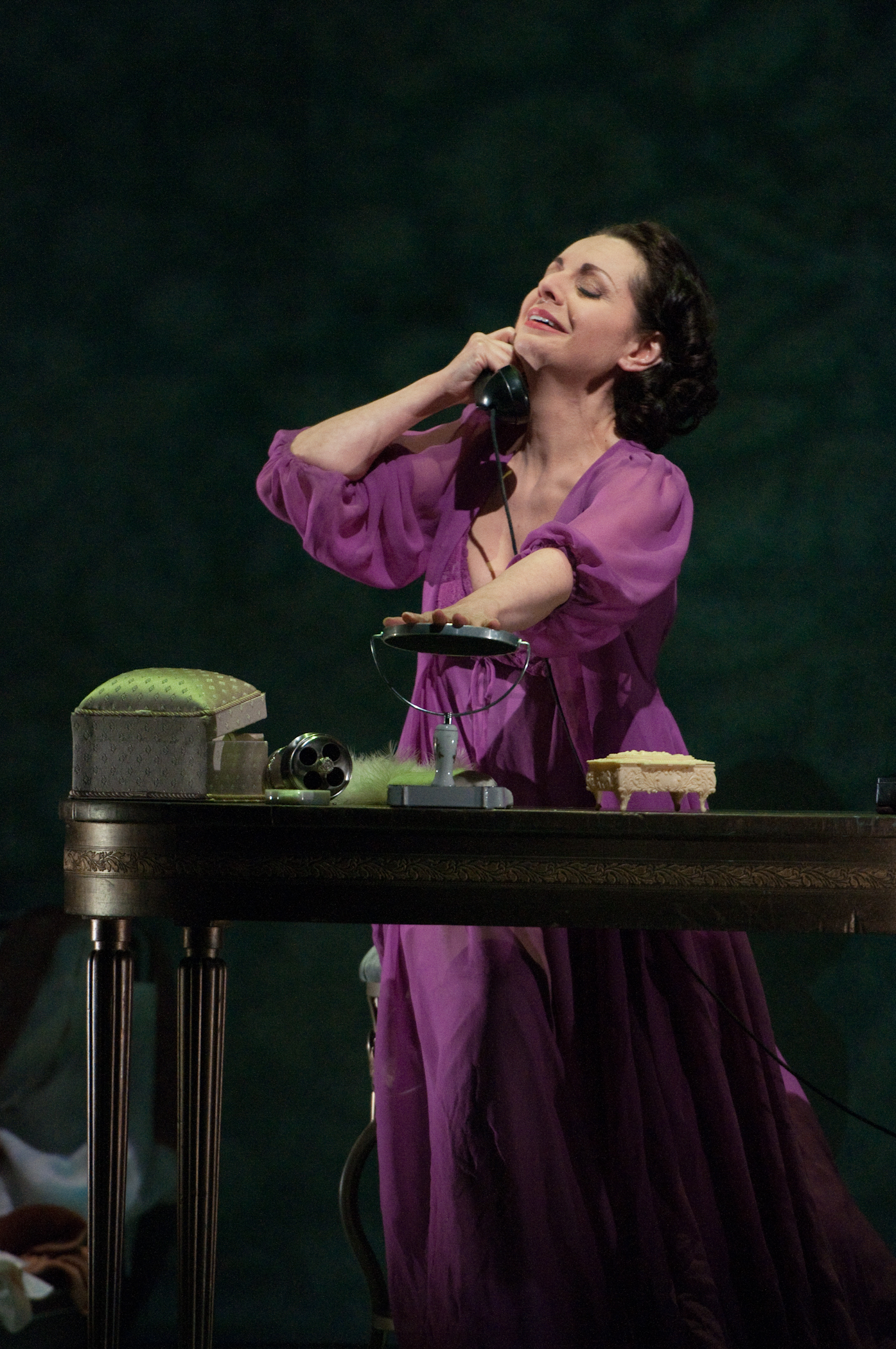La Voix Humaine/ Suor Angelica
McCaw Hall, 321 Mercer St. (Seattle Center), 389-7676, seattleopera.org. $25 and up. 7:30 p.m. Wed. & Sat., 2 p.m. Sun. Ends May 18.
I am not generally a crier over theater in any form. And if I do, it’s at happy endings rather than tragic; I’ve misted up far oftener at the end of Falstaff than at La boheme. But a UW student production of Puccini’s Suor Angelica about eight years ago had me convulsing with sobs, nearly to the point of being disruptive to nearby operagoers.
The climax of Seattle Opera’s staging, which opened Saturday, is moving, if not quite the same sledgehammer blow. In this 1918 one-act, the title nun, sent to a convent seven years earlier for having a child out of wedlock, longs for word of her son’s fate; getting it drives her to suicide and a reunion with him. (I guess it could be considered a happy ending.) Maria Gavrilova brings a huge voice—a Turandot/Brunnhilde voice—to the role. It reveals the heart throbbing under her habit, as if Gavrilova is not merely aiming her sound into the hall, but allowing it to escape on the wing the constrictions of monastic life. The bearer of the bad news, Angelica’s malevolent aunt (whom author William Berger calls “perhaps the single biggest bitch in all opera”), is sung by veteran Rosalind Plowright, who specializes in villainesses and plays her like a black-clad ice sculpture. Director Bernard Uzan’s uncluttered, by-the-book staging shows he trusts the piece, which is the only way it can work.
This all-woman double bill—the only male voices you hear are those in the backstage choir at Angelica’s climax—opens with Francis Poulenc’s 1959 monodrama La voix humaine (“The Human Voice”), an idea that shouldn’t work at all: Jean Cocteau’s libretto portrays one side of a 40-minute phone conversation between a woman and her unseen lover, who, we gradually gather, is breaking things off. You can’t blame him; you know the woman, identified only as “Elle” (“She”), is nuts from the way soprano Nuccia Focile neurotically strokes the phone like a pet cat, even before she admits to her lover she almost stalked him to his apartment and later took a dozen sleeping pills.
How can a singer bring tragic grandeur to something as mundane as a phone call without turning it into camp? Focile, unwaveringly focused and committed, does just that. Poulenc’s shrewd deployment of forces intensifies her situation. His orchestra doesn’t consistently accompany the voice, work in concert with it, but usually simply underscores it cinematically. (It often remains silent while “Elle” sings, but fills the gaps between her utterances.) Occasionally it does even less, just providing decor: sensuous, Messiaen-esque chords like upholstered cushions for the voice to lounge upon. Voix is less an opera for soprano and orchestra than one for soprano tellingly alone with an orchestra off on some other plane. Though there’s nothing surreal about Uzan’s staging, the sonic isolation that Poulenc engineered and Focile realizes chillingly made it seem like we were not only seeing but hearing a hallucinatory breakdown.
gborchert@seattleweekly.com







